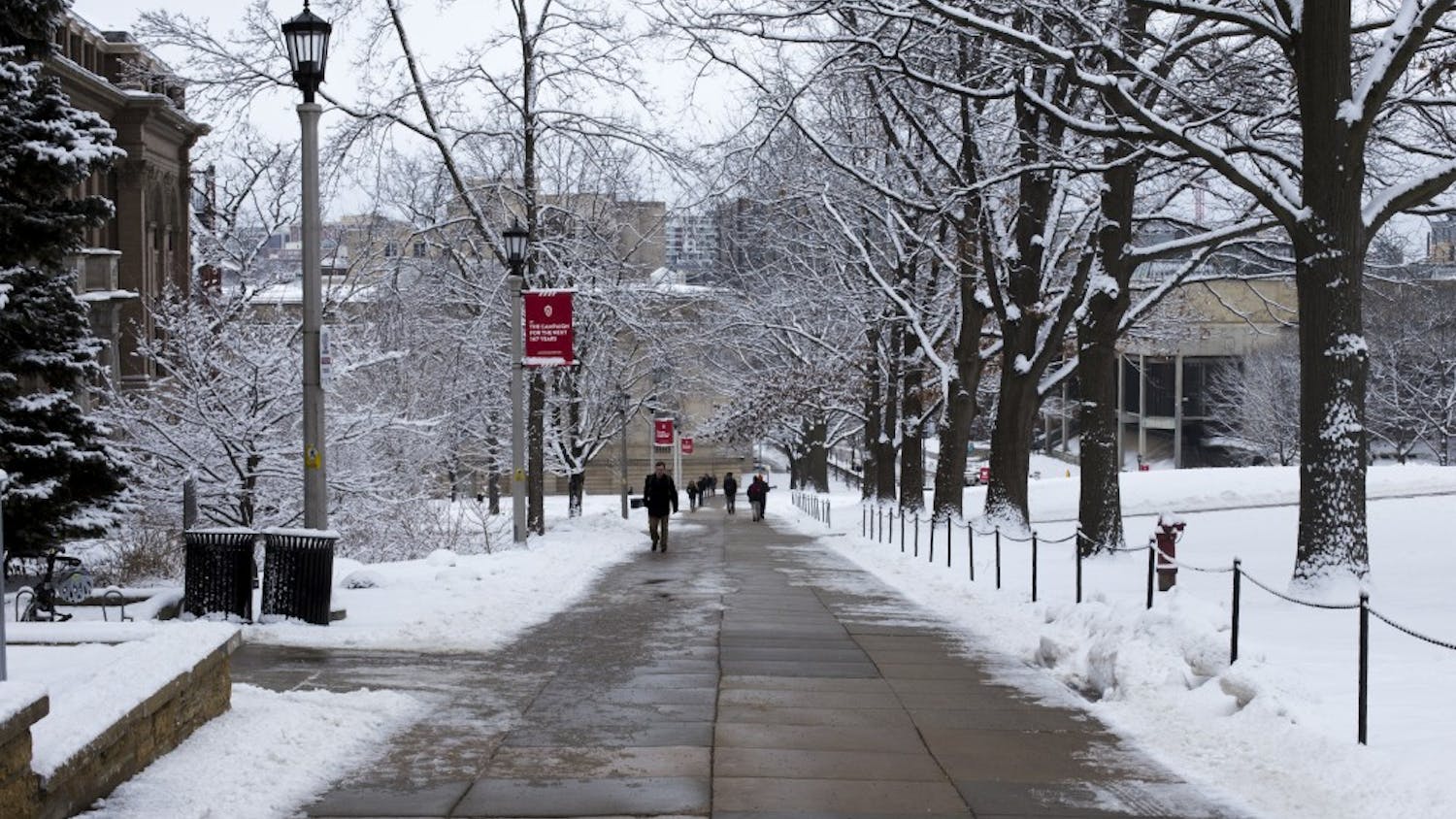The Governor’s Task Force on Climate Change released its 120-page report for Gov. Tony Evers Wednesday detailing 55 policy strategies across nine sectors to mitigate climate change in the state.
Over the past year, the task force has held listening sessions and studied recent climate data to make policy recommendations. Gov. Tony Evers established the task force in 2019 and appointed Lt. Gov. Mandela Barnes to chair the group. The 32 members include elected and Tribal officials, business leaders and a YCAT representative. The report was sent to Evers last month and made public this week.
The report recommends policies in nine sectors — climate justice and equity, energy, transportation, agriculture, resilient systems, clean economy, education, food systems and forestry — which could be implemented through executive or agency action, the upcoming biennial budget or legislation.
In a press release, Evers said climate change is an “imminent threat” to the state and said he “[looks] forward to working together to take action to address this crisis.”
The report included environmental justice considerations throughout its recommendations and proposed creating an Office of Environmental Justice.
“Communities of color and low-income communities in our state are feeling the burden of the climate crisis the most — despite contributing the least to the problem. In order to address this crisis and the environmental injustices associated with it, we must take urgent action,” Barnes said Thursday in a Democratic radio address about the report.
Rep. Greta Neubauer, D-Racine, one of three state lawmakers on the task force, said the report was “built on years of grassroots organizing” that “must continue” as the state moves forward.
“The report charts a path forward and creates a foundation for us to address this crisis, however, this crisis is broad and deep and much work remains to be done to tackle this crisis with the urgency it demands,” Neubauer said in a statement.
The task force made recommendations for the agriculture sector, such as funding a pilot program that pays farmers for carbon sequestration and increasing incentives for cover crops that increase soil carbon storage — practices that can offset greenhouse gas emissions and mitigate climate change.
Recommendations also focused on community resilience to natural disasters, including creating a flood resilience plan with a focus on urban and rural-specific watershed action.
The report does not include the estimated cost for the proposals, and the state is posed to face fiscal challenges during the upcoming budget process due to the pandemic. However, Barnes told Kenosha News that the recommendations — which include creating a green jobs corps pilot program in Milwaukee — are a chance for the state to recover economically and become more resilient.
Fossil fuel recommendations
The report recommends setting utility carbon-reduction goals, including reducing power sector net carbon emissions to 100 percent below 2005 levels by 2050. It also recommends passing a bill introduced in January that would require the Public Service Commission to consider the social cost of carbon — which measures the economic damage of emitting greenhouse gases — when planning new energy generation projects.
However, the report stops short of targeting fossil fuels directly. Avoiding all new fossil fuel infrastructure and state divestment from fossil fuels are included as “Tier 2” proposals, indicating the task force thinks they “may merit further discussion and consideration outside the work of the task force.”
“Public comment to the task force consistently and repeatedly requested action to avoid new fossil fuel infrastructure in the state and requested bold action regarding our energy infrastructure,” the report reads, noting that the goal could be achieved through executive action, the state budget or legislation.
Additionally, according to the task force, which consulted the Legislative Reference Bureau, “there is no clear process through which the state can require the UW System Foundation to divest funds from the fossil fuel industry because the Foundation is a private 501(c)(3) nonprofit corporation.”
However, the UW System Foundations could “independently divest” to follow the lead of other major colleges and universities. The report references the UW Divestment Coalition, “a movement among UW students in support of this voluntary divestment.” UW-Madison’s student governance body recently passed a resolution in support of the coalition and its goals.
The Wisconsin Conservation Voters supported the report’s recommendations, especially reducing carbon emission goals for utilities, creating an Office of Environmental Justice and increasing resources to local governments that are leaders in clean energy.
"As a task force member, it was heartening to get so much input from the public,” Executive Director Kerry Schumann said in a press release. “We heard over and over at all of the public hearings that people want to see the state move as quickly as possible to 100 percent clean energy and significantly reduce carbon emissions. And they want to ensure the transition is done in a just, equitable way.”
UW climate science behind the report
The Wisconsin Initiative on Climate Change Impacts (WICCI) contributed a report to the task force over the summer that compiled scientific evidence and proposed potential solutions. WICCI is a partnership between the UW-Madison Nelson Institute for Environmental Studies and the Wisconsin Department of Natural Resources.
WICCI’s report also highlighted equity concerns throughout its proposed strategies. WICCI co-director and DNR policy advisor Pamela Porter explained the importance of environmental justice.
“I think it was sort of the focus of the governor and the lieutenant governor to make sure that they designed a task force that represented the state,” Porter said. “I think the big challenge is that for too long, climate policy and climate science has focused on technical solutions rather than looking more at social and economic challenges.”
Wisconsin is becoming warmer and wetter, according to WICCI. By the middle of the century, the number of extremely hot days is expected to triple and extreme precipitation events will increase.
One impact of climate change is observable right in Madison. For over 150 years, climate scientists have used Lake Mendota’s freezing and thawing dates to track climate change over time. Steve Vavrus, a WICCI co-director and senior scientist at the Nelson Institute Center for Climatic Research, explained that the records are a “gold mine” for tracking a changing climate.
“If you look at the five longest durations of ice cover on Lake Mendota, they all happened in the 1880s or earlier. The five shortest ice winters on Lake Mendota all happened in the 1980s or later,” Vavrus said. “Your eye can see it in that graph, and it is one of the very tangible impacts of climate change that Madison can see and feel.”
Vavrus explained that heavy flooding has affected both rural and urban communities across the state in different ways. While rural regions deal with wet springs and summers that pose challenges with crops, urban areas have experienced basement flooding, which can lead to structural damage or mold growth that affects Wisconsinites’ health.
“There’s just almost no area in which climate doesn’t affect our lives, whether it’s health, our natural resources, the economy, all sorts of ways,” Vavrus said. “We’re all in this together and we all are affected.”
Hope Karnopp is the news manager and dabbles in music reviews at The Daily Cardinal. She previously hosted the Cardinal Call for WORT-FM and edited state news.






